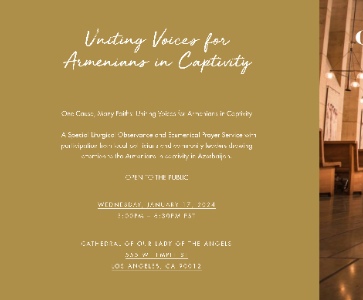The Bahá’í teachings espouse the concept of “One Source, Many Voices,” which articulates the idea that all major world religions originate from a singular divine source. This perspective fosters an appreciation of diversity while simultaneously corroborating the unity of religious truth across various faiths. This article endeavors to explore the connection of the prophets of all faiths, emphasizing the shared principles and teachings that manifest through disparate cultural and historical contexts.
Central to the Bahá’í understanding is the recognition of the Manifestations of God. These revered figures, including Jesus, Muhammad, Moses, and Bahá’u’lláh, are viewed as divine educators sent to humanity at different epochs. Each prophet is perceived as a voice that communicates a distinct yet fundamentally unified message tailored to the specific needs of society at that time. This temporal unfolding of divine guidance is essential for the spiritual advancement of humanity.
The first point of significance is the principle of progressive revelation. This doctrine posits that divine guidance is not only a monolithic entity but rather evolves to meet humanity’s growing comprehension and needs. Each prophet builds upon the foundation laid by their predecessors, thereby contributing to an unfolding narrative of divine truth. For instance, Jesus’ message of love and forgiveness complements Muhammad’s emphasis on submission to divine will and community cohesion. This interconnectedness shows how each faith amplifies different aspects of a universal truth.
Further exploration of these teachings highlights the concept of unity in diversity. The Bahá’í Faith posits that the myriad expressions of faith, rituals, and cultural practices are reflections of a singular divine reality. This perspective promotes a reconciliatory spirit, urging adherents to embrace pluralism within their spiritual practices. Rather than viewing differences as a barrier, Bahá’ís are encouraged to celebrate the unique contributions of each tradition, recognizing that each reflects a facet of the divine.
Moreover, the teachings assert the importance of ethical conduct and moral development. Each manifestation brought forth ethical precepts crucial for elevating human conduct. For instance, the Golden Rule exists in various forms across religions, urging individuals to treat others with kindness and respect. This universal principle indicates that, at the core, moral teachings transcend cultural boundaries and align with the intended purpose of promoting societal harmony.
Additionally, the concept of the oneness of humanity is pivotal in Bahá’í teachings. All prophets, regardless of their originating faith, emphasize love, compassion, and service to humanity. The Bahá’í writings encourage adherents to actively engage in alleviating societal injustices, thereby embodying the principles taught by the prophets. The interconnectedness of these teachings reinforces the idea that true adherence to any religion necessitates a commitment to the welfare of others, reflecting the collective spiritual heritage of all peoples.
Furthermore, a salient feature of the Bahá’í faith is its advocacy for the abolition of all forms of prejudice. This ideology is directly linked to the belief in the oneness of humanity; distinguishing between different races, religions, or nationalities undermines the very fabric of spiritual unity. Each prophet’s teachings advocate for inclusivity and understanding, reinforcing the notion that diverse backgrounds enrich the collective spiritual experience. This multilateral embrace is crucial in navigating contemporary global challenges.
Another critical aspect is the correlation between faith and reason. The Bahá’í Faith champions that faith must be harmonized with science and rational thought. This principle reflects the belief that truth is one and cannot be contradictory; thus, the teachings of the prophets should coalesce with human inquiry and understanding. The harmony of science and spirituality encourages an engaged citizenry that seeks to comprehend the complexities of existence beyond dogmatic interpretations. In this milieu, the teachings of each prophet become a source of inspiration for intellectual and spiritual advancement alike.
The use of symbolism and metaphor within each religious tradition serves another purpose in the dialogic exchange between different faiths. These symbols often encapsulate profound truths conveyed through allegorical narratives. As such, understanding the underlying meanings of religious symbolism fosters deeper interfaith dialogue. The Bahá’í teachings encourage individuals to transcend superficial differences, inviting them to delve into the essential teachings encapsulated within these symbols.
In conclusion, the Bahá’í teachings on “One Source, Many Voices” elucidate the interconnectedness of prophets across diverse faiths. This theological framework promotes a comprehensive understanding of religion as a manifestation of a singular divine intention. By embracing the principles of progressive revelation, unity in diversity, ethical conduct, and the oneness of humanity, adherents are encouraged to cultivate a transcendent worldview that honors all spiritual pathways. These teachings not only advocate for interfaith harmony but also inspire individuals to actively engage in the promotion of collective well-being—thereby epitomizing the essence of the divine message conveyed through the prophets of all faiths.
